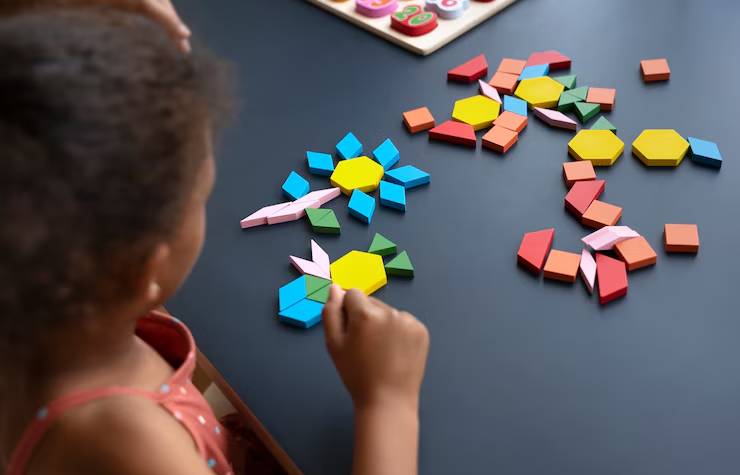The rigid structure of traditional classrooms often leaves children feeling drained of energy and disconnected from genuine learning experiences. Winter camp for kids provides the perfect antidote to this educational monotony. These programmes offer children the chance to explore, create, and discover new things through activities that feel more like adventures than lessons.
Parents across Abu Dhabi increasingly recognise that a winter camp for kids in Abu Dhabi delivers educational value without the pressure of formal assessments. Children return from these experiences with renewed curiosity and confidence. The blend of structured activities and free exploration creates an environment where learning happens naturally.
Breaking Free from Classroom Constraints
Traditional education systems often box children into predetermined learning styles and paces. Winter camps shatter these limitations completely. Children who struggle with conventional teaching methods suddenly flourish when presented with hands-on activities and creative challenges.
The freedom to move, explore, and interact transforms how children process information. Camp environments encourage questions rather than memorisation. This shift in approach often reveals hidden talents and interests that classroom settings might never uncover.
Some children discover their love for science through outdoor experiments. Others find their artistic voice through craft projects. The variety of activities ensures every child finds something that sparks their imagination and builds their confidence.
Developing Real-World Skills Through Play
Winter camps excel at teaching practical skills that traditional education often overlooks. Children learn teamwork through group challenges and problem-solving through creative projects. These skills prove invaluable throughout their academic journey and beyond.
Communication skills develop naturally when children work together on camp activities. They learn to express ideas, listen to others, and negotiate solutions. These soft skills become the foundation for future success in both academic and professional settings.
Leadership qualities emerge when children take charge of projects or help younger campers. The informal environment allows natural leaders to step forward without the pressure of formal classroom hierarchies.
Physical Activity Enhances Cognitive Function
Research consistently shows that physical activity boosts brain function and academic performance. Winter camps prioritise movement and outdoor activities that traditional classrooms simply cannot accommodate. This physical engagement creates optimal conditions for learning and memory formation.
Active children demonstrate improved concentration and better emotional regulation. The combination of fresh air, physical challenges, and creative activities creates a perfect storm for cognitive development. Children return to school with enhanced focus and renewed energy for academic challenges.
The variety of physical activities available at winter camps ensures that every child finds something they enjoy. From sports to nature walks, each activity contributes to overall physical and mental wellbeing.
Social Skills Flourish in Relaxed Environments
The informal atmosphere of winter camps creates ideal conditions for social development. Children interact with peers from different schools and backgrounds, expanding their social circles and cultural awareness. These interactions teach tolerance, empathy, and communication skills that extend far beyond the camp experience.
Friendships formed at such camps often prove deeper and more meaningful than classroom relationships. The shared experiences and adventures create strong bonds that can last for years. Children learn to navigate social situations without the academic pressures that sometimes complicate school friendships.
Shy children often find their voice in camp settings where participation feels voluntary rather than mandatory. The supportive environment encourages children to step outside their comfort zones and try new things.
Creativity Takes Centre Stage
Traditional education systems often struggle to accommodate creative expression within tight curriculum requirements. Winter camps place creativity at the heart of every activity. Children explore art, music, drama, and creative writing without the constraints of grades or assessments.
This creative freedom allows children to develop their unique talents and interests. They experiment with different mediums and techniques, discovering new passions along the way. The emphasis on process rather than product encourages risk-taking and innovation.
Creative activities at camp often inspire children to continue these pursuits at home and school. Many children return from camp with new hobbies or renewed interest in subjects they previously found boring.
Building Confidence Through Achievement
Camp activities provide numerous opportunities for children to experience success and recognition. Unlike academic achievements that depend heavily on specific skills, camp activities offer multiple pathways to success. Every child can find something they excel at or enjoy.
The supportive environment means that mistakes become learning opportunities rather than failures. Children develop resilience and persistence as they work through challenges with encouragement from counsellors and peers.
Personal achievements at camp often translate into increased confidence in academic settings. Children who discover their capabilities through camp activities approach school challenges with greater self-assurance and determination.
Preparing for Future Academic Success
The skills and confidence gained through winter camp experiences create lasting benefits for academic performance. Children return to school with improved social skills, enhanced creativity, and stronger problem-solving abilities. These advantages compound over time, leading to better academic outcomes and greater enjoyment of learning.
The break from traditional learning allows children to return to school with fresh perspectives and renewed enthusiasm. They often demonstrate improved engagement and participation in classroom activities.
Winter camps serve as a bridge between formal education and real-world application of knowledge. Children learn to apply academic concepts in practical situations, making their classroom learning more meaningful and memorable.
Winter camps represent more than just a break from school routine. They provide essential learning experiences that complement and enhance traditional education. The combination of physical activity, creative expression, social interaction, and skill development creates a holistic approach to child development that benefits every participant long after the camp ends.
Featured Image Source: https://img.freepik.com/free-photo/high-angle-girl-making-puzzle_23-2149557913.jpg

